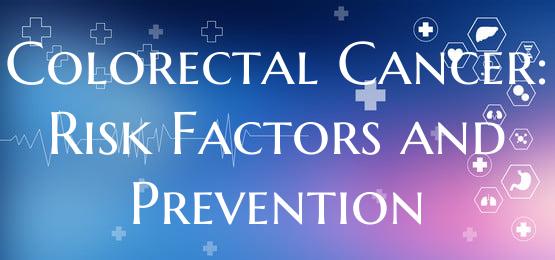
Colorectal Cancer: Risk Factors and Prevention
Colorectal Cancer: Risk Factors and Prevention
Colorectal cancer, also known as bowel cancer, is the third most common cancer worldwide. It affects the colon or rectum, which are parts of the digestive system. Understanding the risk factors associated with colorectal cancer and taking preventive measures are crucial in reducing the incidence and mortality rates of this disease.
Risk Factors: 1. Age: Colorectal cancer is more common in individuals over the age of 50, with the risk increasing as one gets older. 2. Family history: Individuals with a family history of colorectal cancer or related genetic syndromes such as Lynch syndrome or familial adenomatous polyposis are at a higher risk. 3. Personal history of polyps or inflammatory bowel disease: Having a history of certain types of polyps or chronic inflammatory bowel diseases like Crohn’s disease or ulcerative colitis can increase the risk. 4. Lifestyle factors: Unhealthy lifestyle habits such as a diet high in red or processed meats, low in fiber, lack of physical activity, obesity, smoking, and excessive alcohol consumption can contribute to a higher risk. 5. Certain medical conditions: Conditions like type 2 diabetes, obesity, and radiation therapy for certain cancers may also increase the risk of colorectal cancer.
Prevention: 1. Screening: Regular screenings such as colonoscopies are essential for detecting precancerous polyps or early-stage colorectal cancer when treatment is most effective. 2. Healthy diet: Consuming a diet rich in fruits, vegetables, whole grains, and low in red and processed meats can reduce the risk of colorectal cancer. 3. Maintain a healthy weight: Obesity has been linked to an increased risk of colorectal cancer, so maintaining a healthy weight through a balanced diet and regular exercise is crucial. 4. Physical activity: Engaging in regular physical activity can help reduce the risk of colorectal cancer. Aim for at least 150 minutes of moderate-intensity exercise per week. 5. Limit alcohol and quit smoking: Limiting alcohol consumption and quitting smoking can lower the risk of developing colorectal cancer and improve overall health.
By understanding the risk factors associated with colorectal cancer and adopting preventive measures, individuals can reduce their chances of developing this disease. Early detection through screenings and a healthy lifestyle are key in the fight against colorectal cancer. If you have concerns about your risk factors, consult with your healthcare provider for personalized advice and screening recommendations.